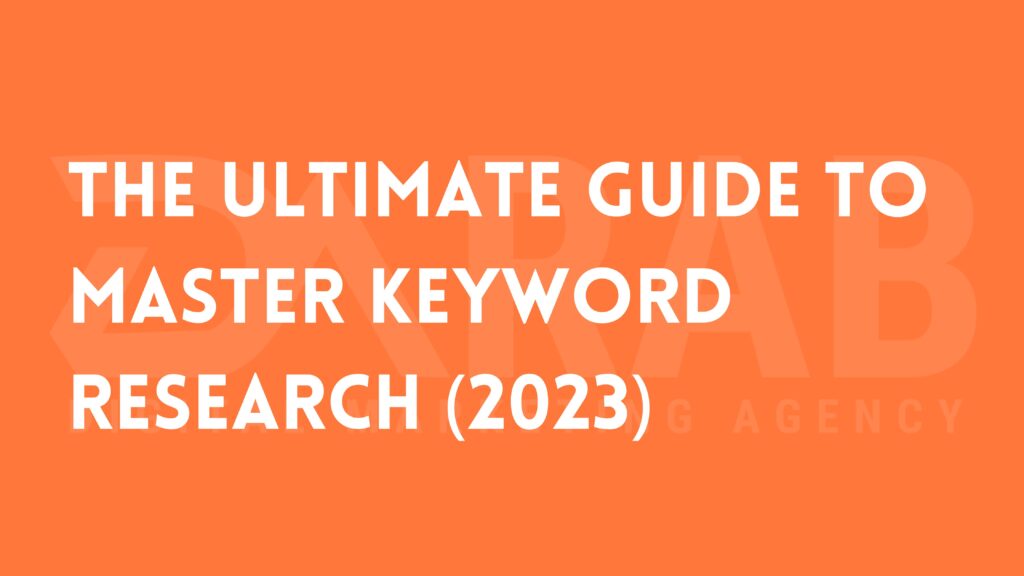1. Getting Started with Keyword Research
1.1 Understanding Your Business:
Identifying relevant words and phrases related to your business is not just a mere formality—it’s a crucial step towards cracking your competitor down. By delving into the minds and understanding the search intent, you can effectively connect with customers and propel your business forward. Imaging you already know what your potential leads are searching.
Put yourself in your customers’ shoes and envision the queries they enter in Google. We have to find the pain points and the solutions for our customers. By empathizing your target audience, the keywords and phrases that will drive qualified traffic to the website can be researched.
For example, A different set of industries will be used as an example. A fitness studio will brainstorm keywords such as “best workout routines,” “healthy meal plans,” or “weight loss tips.” But a software company will finalize terms like “cloud computing solutions,” “data security software,” or “enterprise automation tools.” By pinpointing the interest of your business and industry, you can identify the words and phrases that resonate with your audience and align with your offerings.
1.2 Relevance and User Satisfaction:
If you want to master the art of Keyword Research – Keyword intent is the paramount. It’s not just about pulling any traffic to your website; it’s about attracting the right traffic— the low hanging fruits. We can use keywords that not only are relevant but also resonates with the buyer intent, we can ensure that the visitors find exactly and make the transaction that we want.
Targeting keywords that attract informational searchers rather than potential buyers can have a negative impact on your business. but it is still needed to build credibility. While informational keywords may drive traffic, they may not lead to conversions or contribute to your bottom line. It’s crucial to strike a balance between providing valuable information and guiding users towards making a purchase or taking the desired action.
Example: An e-commerce store selling hiking gear, targeting keywords like “best hiking boots for beginners” or “how to choose the right backpack for hiking” cater informational intent. But, this is not the real cream, right? “buy hiking boots online” or “affordable hiking gear” tends to generate more business because of commercial intent, which increase our conversions and put more meat on the table.
1.3 Money Making Keywords:
Right keywords not only generate better profits but also help us build a community. It’s not just about generating traffic— it’s about generating profitable traffic. The real art is to identify and target keywords with high conversion potential. Put simply, every business today wants to get ranked in #1 on Google.
What’s the difference between informational and transactional intent?
If someone is searching for “benefits of yoga.” This keyword can generate traffic for him, but the customer’s intent is primarily to gather information. But, a keyword like “best yoga studio near me” indicates a better intent to engage with a yoga studio. By choosing transactional keywords, you can tap into users who are further along in the buyer’s journey and increase your chances of conversion.
When selecting keywords focus on profitability and conversion potential, you can optimize your marketing efforts and maximize your return on investment. The aim is to get traffic that converts —strive for traffic that converts into paying customers, loyal clients, and advocates for your business.
2. Crafting Effective Keywords
2.1 Niche and Selling Points:
In keyword research. unique selling points are of utmost importance. An entire idea about your niche and specialized offerings, can craft targeted keywords which resonate with the customer journey and embarks success.
What makes a business unique?
The differentiators based on keyword intent is the foundation for your keyword selection. For example, Handmade organic skincare products will target “handcrafted organic skincare,” “natural skincare products,” or “organic skincare for sensitive skin.” Right selling points will gather right audience in your portfolio.
2.2 Long Tail Keywords:
Long tail keywords play a vital role in driving targeted traffic to your website. Long tail keywords are more specific and typically consist of three or more words. While they may have lower search volumes compared to broader keywords, they offer distinct advantages that can significantly impact your conversion rates.
Longtail keywords unlocks the real goldmine, you can tap into the specific search intents of users who are closer to making a purchase or taking a desired action. For instance, instead of a broad keyword like “yoga mat,” you can incorporate long tail variations such as “non-slip eco-friendly yoga mat” or “extra thick yoga mat for joint support.” These long tail keywords capture the specific needs and preferences of potential customers, increasing the likelihood of conversion.
What makes a winning keyword strategy?
Combining body keywords (shorter, more generic keywords) with long tail keywords is a winning strategy. Body keywords help attract a broader audience and generate traffic, while long tail keywords refine that audience and drive more qualified leads. For instance, a fitness blog will use keyword like “fitness tips” to attract a wide range of visitors, but they can also use long tail keywords like “cardio exercises for weight loss” or “strength training routines for beginners” to target specific segments of their audience.
A clothing retailer strategy will be crafted as per the discussion. The broad keyword “dresses” may attract a wide range of users, targeting long tail keywords like “floral summer dresses for weddings” or “elegant evening dresses for formal events” allows him to capture users with specific needs and intents. These long tail keywords not only drive targeted traffic but also increase the chances of conversion as they align closely with the user’s search intent.
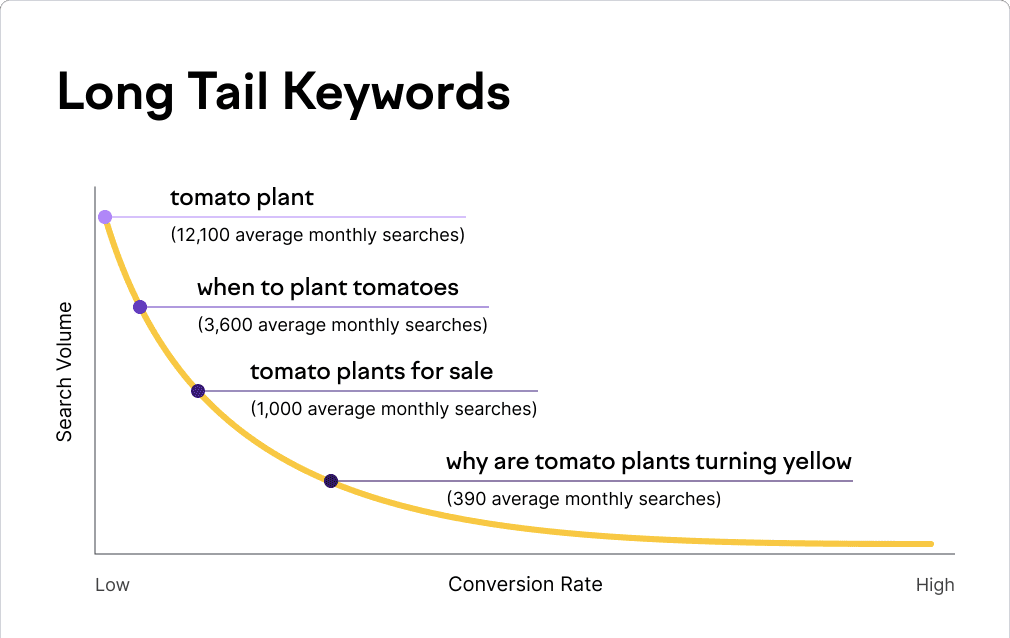
Note: Crafting effective keywords involves leveraging your niche and selling points while incorporating long tail keywords into your strategy. You can capture the attention of your target audience, increase your conversion rates, and establish a strong online presence that sets you apart from the competition.
3. Analyzing Competitors
3.1 Importance of Competitor Analysis:
Your competitors’ keyword strategies is crucial to spot while crafting one for your brand. By looking at their keywords, you can gain valuable insights and uncover opportunities to enhance your own keyword strategy.
Competitor analysis helps you identify gaps and opportunities for improvement within your industry. By examining the keywords your competitors are ranking for, you can gauge the effectiveness of their strategies and determine where you can differentiate yourself.
Are there keywords they haven’t targeted yet?
Are there areas where they are lacking in search visibility?
By answering these questions, you can identify untapped niches and potential gaps in the market that you can capitalize on.
The Difference between Direct and Indirect Competitors?
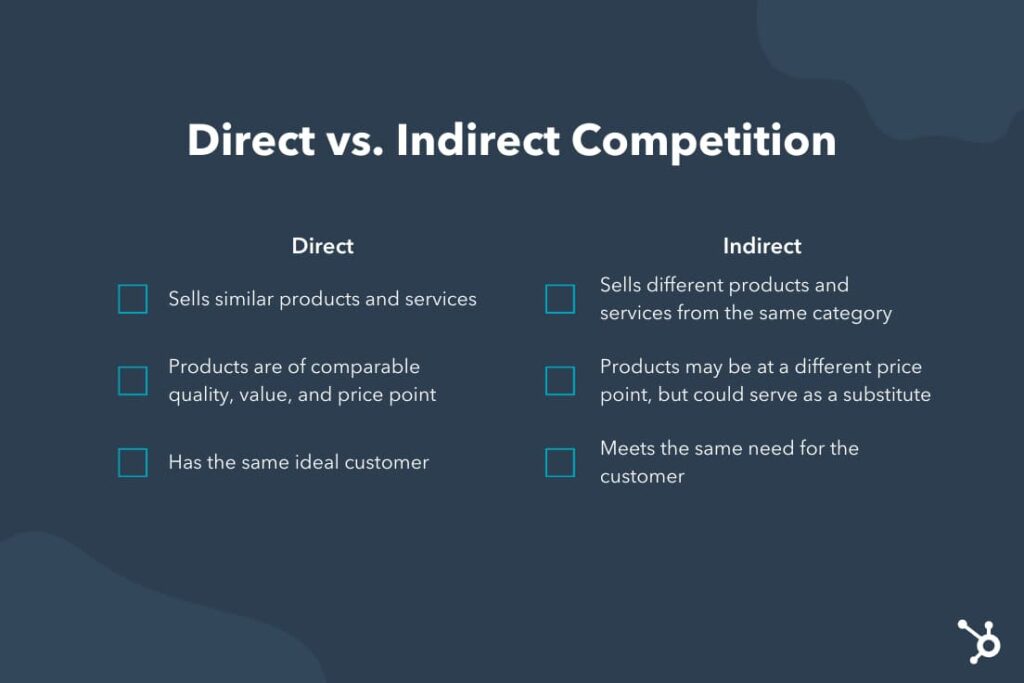
3.2 Identifying Competitor Keywords:
You can analyze your competitor’s keywords with the help of Google Keyword Planner and Semrush, that can provide valuable insights. These tools allow you to discover the keywords your competitors are ranking for, giving you a starting point for your own keyword research.
Using Google Keyword Planner, you can enter your competitors’ website URLs or specific keywords associated with their industry. The tool will then provide a list of related keywords that your competitors are targeting, along with search volume data and competition levels. This information gives you a clear understanding of the keywords that are driving traffic to their websites.
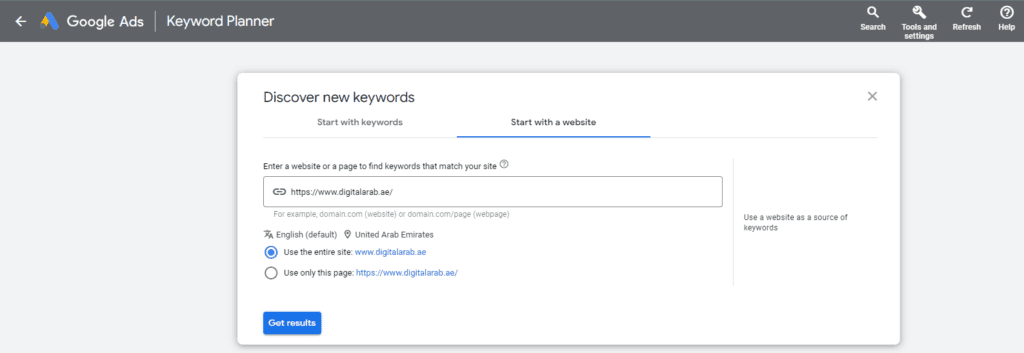
Semrush is another excellent tool that provides comprehensive competitor analysis. By entering your competitors’ website URLs into Semrush, you can uncover the keywords they rank for, organic search positions, and even gain insights into their ad strategies. This allows you to understand their keyword focus and identify areas where you can potentially outrank them.
While exploring your competitors’ keywords, it’s essential to focus on those that are relevant to your unique offerings. Identify keywords that align with your value proposition and target audience. For example, if you are a travel agency specializing in adventure travel, analyzing the keywords your competitors use for adventure travel destinations, adventure activities, or travel gear can help you identify new opportunities and fine-tune your own keyword strategy.
Remember, competitor analysis is a valuable exercise that provides insights into the strategies of other players in your industry. By leveraging tools like Google Keyword Planner and Semrush, you can identify competitor keywords, assess their effectiveness, and uncover opportunities to enhance your own keyword strategy. This knowledge equips you with the tools you need to stand out from the competition and improve your online visibility.
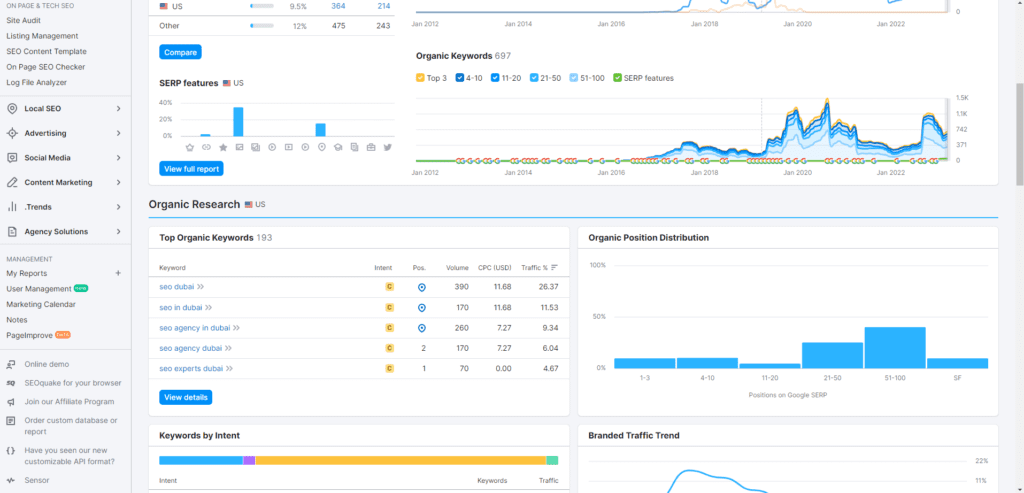
4. Refinement and Cleanup
4.1 Commercial Intent Keywords:
Keyword is the King and the focus on keywords that indicate high commercial intent is of prime importance. The keywords that satisfy the a purchase or engage in a transaction are money making keywords. By targeting these keywords, you can attract users who are actively looking for products or services and are more likely to convert into customers.
To identify commercial intent keywords, their are some patent keywords. Examples include “buy,” “purchase,” “discount,” “deal,” “best price,” and “free shipping.” These keywords indicate the user is ready to take action and is actively seeking a solution or product to fulfill their needs. By incorporating these keywords strategically into your content, you can increase the likelihood of attracting motivated buyers.
4.2 Informational Keywords:
While commercial intent keywords are crucial for driving immediate conversions, it’s also important to consider keywords related to providing information, guides, or comparisons. These informational keywords can attract users who are in the research phase and may convert later.
Keywords like “how to,” “guide,” “tutorial,” “benefits of,” “comparison,” and “reviews” indicate that the user is seeking information or guidance. These keywords in your content can position you as a valuable resource and build trust with your audience. Users may not convert immediately, but they are likely to remember the brand and return when they are ready to make a purchase.
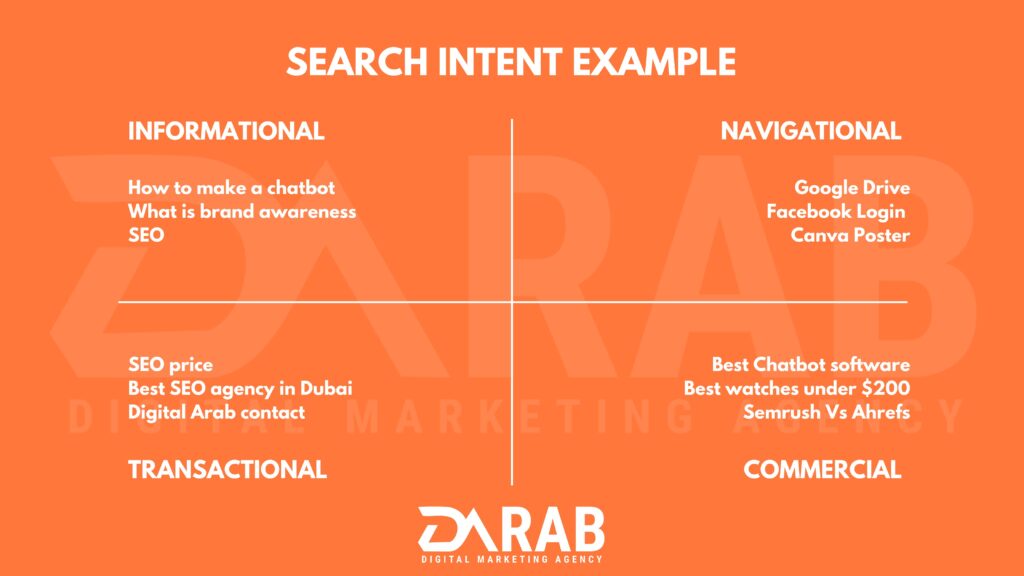
4.3 Balancing Keywords:
Achieving a balanced keyword approach is essential for an effective SEO strategy. It’s important to consider keywords from different intent categories to cater to a diverse range of users and their search intentions.
To incorporate a variety of keywords throughout your website’s content, start by conducting thorough keyword research. Identify commercial intent keywords, informational keywords, and even navigational keywords (keywords that help users find specific websites or pages). By understanding the intent behind each keyword, you can strategically distribute them across your website’s pages, blog posts, product descriptions, and other content.
Ensure that your chosen keywords flow naturally within your content and provide value to your audience. Avoid keyword stuffing or over-optimizing your content, as this can negatively impact user experience and search engine rankings. Instead, focus on creating high-quality, informative, and engaging content that seamlessly incorporates a mix of relevant keywords.
By striking a balance between commercial intent keywords and informational keywords, you can attract users at different stages of the buyer’s journey and maximize your website’s visibility and conversion potential. A well-rounded keyword strategy is key to driving organic traffic, increasing user engagement, and ultimately achieving your business goals.
5. Understanding Other Keyword Metrics
5.1 Traffic Volume:
It’s important to understand that search engines rank individual pages rather than entire websites. This means that optimizing your pages for specific keywords can help you attract targeted traffic to those pages. By focusing on ranking pages, you can strategically optimize your content and increase its visibility in search engine results.
Targeting multiple keywords is another effective strategy to increase overall traffic. By identifying a range of relevant keywords that align with your content and target audience, you can broaden your reach and attract visitors with varying search intents. This allows you to capture a larger share of search traffic and increase the overall visibility and exposure of your website.
5.2 Competition:
Keyword rankings are highly competitive, especially for popular and industry-specific keywords. It’s important to recognize the challenges associated with ranking for highly competitive keywords, as it can require significant effort and resources to achieve desirable positions in search engine results.
When selecting keywords, it’s crucial to strike a balance between competitiveness and conversion potential. While highly competitive keywords may attract a larger volume of search traffic, they can also be more challenging to rank for. On the other hand, targeting less competitive keywords may result in lower search volumes but can offer higher conversion rates. It’s essential to evaluate the competitiveness of keywords and consider their relevance to your target audience and business goals.
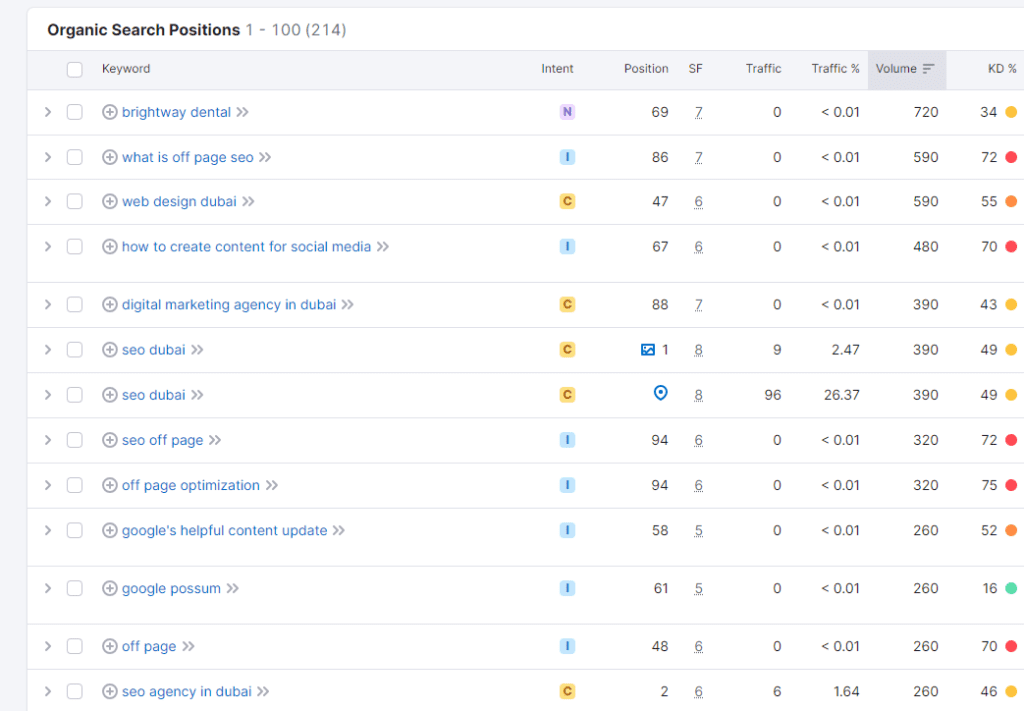
6. Recommended SEO Research Tools
6.1 Google Keyword Planner:
Google Keyword Planner is a powerful tool that provides valuable functionalities for keyword research. It allows you to discover relevant keywords, analyze their search volumes, and assess their competitiveness. By leveraging Google Keyword Planner, you can uncover new keyword opportunities, refine your keyword strategy, and optimize your content to align with the search intents of your target audience.
Despite potential criticisms surrounding the limited precision of search volume data and the emphasis on paid advertising, Google Keyword Planner remains an enduringly popular tool among SEO professionals. Its integration with Google Ads and its access to Google’s vast search data make it a valuable resource for keyword research and planning.
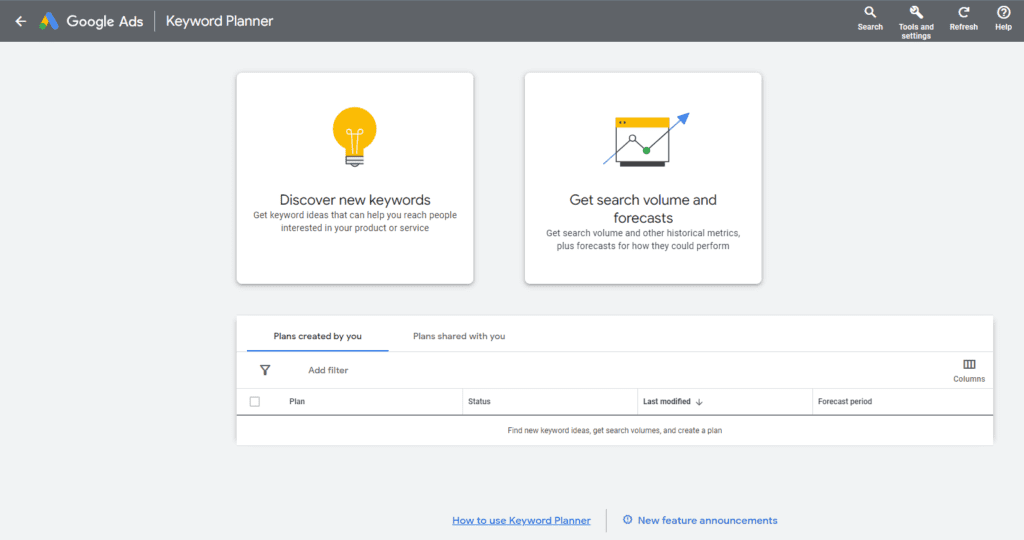
6.2 Semrush:
Semrush is an industry-leading SEO tool that offers a comprehensive suite of features for competitor analysis and keyword discovery. With Semrush, you can gain insights into your competitors’ keyword strategies, identify the keywords they are ranking for, and uncover new keyword opportunities for your own website.
In addition to competitor analysis, Semrush provides additional functionalities that make it a favored tool among SEO professionals. These include backlink analysis, site auditing, position tracking, and content optimization recommendations. With its extensive toolkit, Semrush offers a holistic approach to SEO research and enables you to make data-driven decisions to improve your website’s visibility and performance.

6.3 Google Trends:
Google Trends is a valuable tool for keyword research, particularly in identifying seasonal trends and regional variations. By exploring Google Trends, you can gain insights into the popularity and search volume of specific keywords over time. This information can help you identify emerging trends, understand the seasonality of keywords, and adapt your content strategy accordingly.
Google Trends also allows you to compare the search volumes of multiple keywords and assess their relative popularity. This feature can assist you in prioritizing keywords based on their current demand and potential audience reach. By incorporating Google Trends into your keyword research process, you can stay ahead of market trends and optimize your content to align with the changing interests and search behaviors of your target audience.
Utilizing these recommended SEO research tools, including Google Keyword Planner, Semrush, and Google Trends, can provide you with valuable insights and data to enhance your keyword research efforts. By leveraging these tools effectively, you can refine your keyword strategy, outperform competitors, and drive targeted organic traffic to your website.
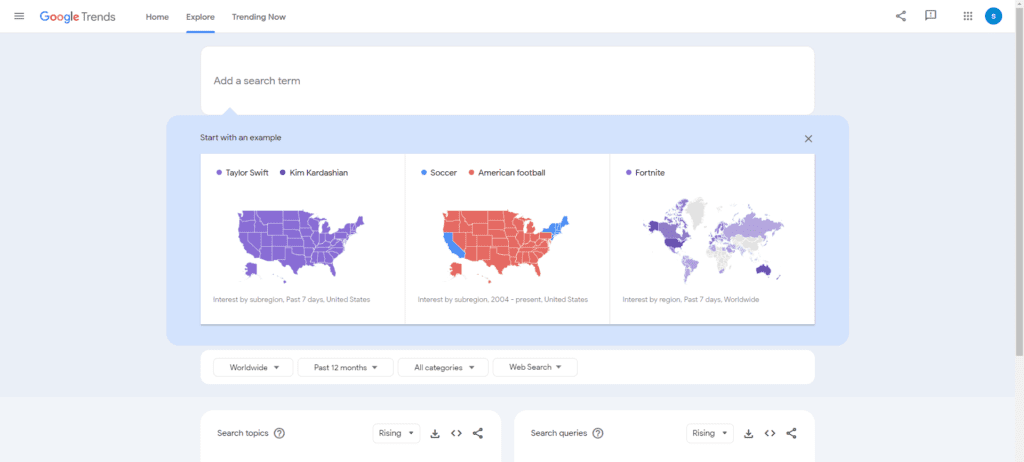
If you are looking to hire a professional Agency to take care of every aspect of SEO Dubai, Digital Arab can help you outperform your competitors.
Take Home Message From Digital Arab
Effective keyword research plays a pivotal role in enhancing online visibility, surpassing competitors, and attracting profitable traffic to your website. By understanding your business, identifying relevant keywords, and aligning them with user intent, you can lay a strong foundation for successful SEO campaigns.
Digital Arab ensured almost all aspects of keyword research, starting from understanding your business and customer perspectives to selecting keywords with high conversion potential. We delved into the significance of long tail keywords and the benefits they bring in terms of driving targeted traffic and improving conversion rates.
Analyzing competitor strategies shed light on valuable insights and opportunities for improvement. By using tools such as Google Keyword Planner, Semrush, and Google Trends, you can gain a competitive edge, identify gaps in the market, and discover untapped keyword potentials.
Understanding other keyword metrics, such as traffic volume and competition, provides a well-rounded perspective. Balancing between targeting high commercial intent keywords and providing valuable information through informational keywords is essential for attracting users in various stages of the purchasing journey.
Keyword research is not a one-time task but an ongoing process. To achieve long-term success in your SEO efforts, it is crucial to implement the strategies and leverage the recommended tools discussed in this guide. Continually refining and optimizing your keyword strategy will help you stay ahead in the dynamic landscape of search engine rankings.
By prioritizing keyword research, you can unlock the potential to boost your online presence, outperform competitors, and drive profitable traffic to your website. So, take action today, implement the insights shared in this guide, and watch your website thrive in the ever-evolving world of search engine optimization. You can hire SEO experts in Dubai who can help you with this intensive process and save you time and efforts.

